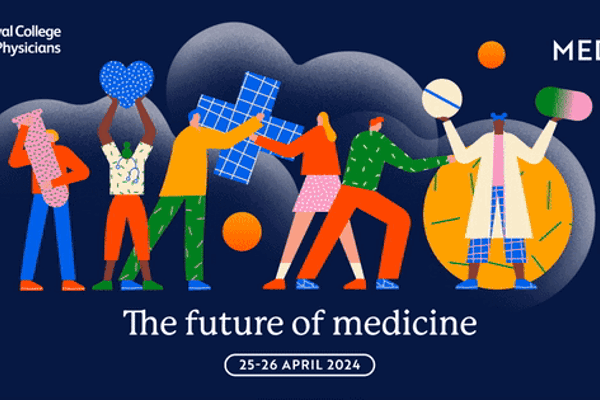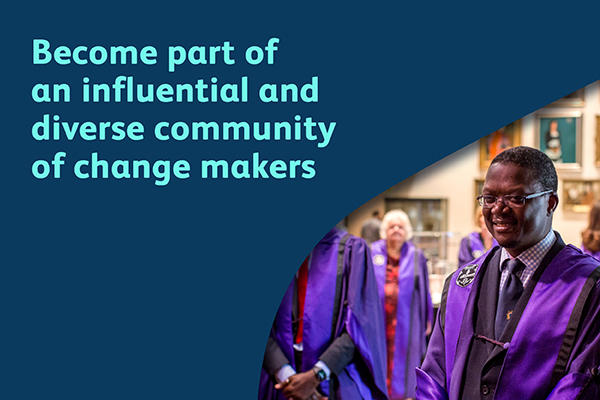In the first of our senior officer blogs for 2024, RCP registrar Professor Cathryn Edwards considers how we can reflect, progress and unlock opportunities in the year ahead.
At the beginning of January, we have a societal urge to look to the new year to usher in better times. A fresh start, new hope, new resolutions for change. We expect that somehow ‘new light shining though old windows’ (with apologies to Chris Rea and others who have coined this phrase) will give a clearer view rather than emphasise the cracks and fragility of the old glass. Nevertheless, we begin 2024 with the same problems in our hospitals and for the medical profession, as when 2023 closed.
I have been thinking a lot about moving forward at difficult junctures, when there are no simple solutions, or if there are, they come at an unacceptable cost to one group or another and perversely result in damage to the profession and our patients. Rarely is there an obvious single action that brings about progress. It is small incremental developments in understanding and resolutions which shift us (painfully sometimes) towards sustainable solutions. How then to find these small marginal gains in momentum?
Professor Kenneth McColl, speaking in 2018 at the British Society of Gastroenterology on the anomalies of clinical and scientific research, noted that it’s not necessarily positive research outcomes which best inform learning. Sometimes it is the unexpected negative or mismatch that unlocks discovery. Similarly, the historian Diarmaid MacCulloch writing on ‘silence’ in religious history, comments that ‘silence then is a vital part of what is missing in history, a necessary tool to help us make sense of the written and visual evidence that we possess.’ He reminds us that understanding and clarity comes from looking at the gaps: ‘only when we know the patterns well can we point out what is missing; what should be there but is not’.
So maybe this is our way forward in the profession’s current difficulties: to stop and consider the missed point, the unspoken sentence in negotiation, the obvious but unstated view missing from the debate.
The RCP too needs to face its early year challenges with a mind on all professional membership constituencies – we are a broad church. We need to positively support our doctors in training, our senior consultants and our physician associate members. This is not an exercise in compromise but an informed reflection on how to find those small opportunities to keep moving forward the professional physician agenda, influencing and shaping what is in our immediate gift.
For doctors in training this might mean addressing core aspects of professional wellbeing: the structure of training and its financial burden; the complexity of rotas and their organisation and the ‘rota gap’ impact on all of us due to inadequate numbers of workforce; the location of training; travel between training sites; annual and study leave allocations and facilities for food and rest on call (the basics still not adequately provided by some trusts).
For our senior fellows working out retirement possibilities and portfolio careers, their place in an increasingly less-than-full-time workforce and their added value needs addressing, reinforcing, and not dismissing. For those who want to continue to work in medicine, the choice should be made easy. And for physician associate colleagues, whose professional journey has recently become the subject of political jousting rather than part of the multi-professional jigsaw, we need to help find professional stability. The practical model of care for our NHS health and social services is a multidisciplinary one. We are, after all, stronger as one physician community and must find ways to keep that community viable and sustainable.
There are gaps as well as conflicts in all debates and public discussions, where considered, reasonable, non-politicised options rarely get much airtime. This surely is where we need to explore solutions and avoid confrontation and division, which does nothing but steal energy from all the work to maintain and continue service provision and care for patients.
Regions, appointments, SAS network and tutors … the clinical and professional affairs of the RCP
These conversations for opportunity start in our regions. Many of you will know the dedicated RCP staff team who work with the hundreds of members and fellows who give their time and commitment to the local and regional activities of the college. Every aspect of the RCP’s purpose is delivered through this regional work– education, improvement, and influence.
Looking back over 2023, I have enjoyed some memorable hospital and trust visits alongside our regional staff. I am looking forward to another outstanding regional update in my home patch of the south west in March 2024 with a locally generated programme of education and continuing professional development. A shout-out also for our fantastic Appointments Advisory Committee team and all those who support their work. I continue to be grateful for the way in which staff retain and sustain those all-important relationships with our members across the UK, through their daily interactions with them.
RCP Linacre fellow Dr Shruthi Konda has been working with the team to reach our national cohort of regional advisers (RAs), college tutors (CTs) and associate college tutors (ACTs). The SAS network event in Wales in November, led by SAS lead Dr Jamie Read, was another highlight.
So many of the regionally delivered events online and in person contribute to the ‘presence’ of the RCP on the ground – notable examples are our educational events such as ‘Call the med reg’, the regional updates in medicine, the CT and ACT network meetings, and the Women in Fellowship events to name but a few. We visit Birmingham on 11 January to meet informally with RAs, CTs and educational supervisors and hope as many as possible of our colleagues in the West Midlands will drop in to share their experiences, clinical commitments permitting.
In his new role, RCP Global vice president Dr Omar Mustafa is increasing the visibility of our global work, including the Medical Training Initiative (MTI) programme hosted by the RCP; ECSACOP (East, Central and Southern Africa College of Physicians) successes, alongside education webinars and leadership initiatives such as the Global Women Leaders programme. We have welcomed new members of the MTI staff team who are generating ideas to help increase the impact of that work, supported by our associate director (AD) for international medical graduates Dr Emma Mitchell, and our AD for Europe Dr Tómas Ágústsson. The expansion of global networks in countries where previously the RCP has not had prominence, has led to the enrichment of our international fellowship.
The first quarter of 2024 is all about the ‘five Cs’: committees, conduct, Council, constitution and consultations. February’s issue of Commentary includes an extended governance piece from me, covering the constitutional review and Council’s activity for 2024. For now, we start the year with a full agenda and a chance to listen, debate and look for the missing pieces and silences, which unlock those small opportunities to move projects, problems and us as a college forward.
Hoping that your new year brings professional fulfilment in whatever form that comes.
With collegiate good wishes as always.




